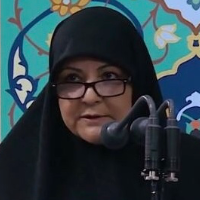Qualitative Analysis of Obstacles and Limitations of Women’s Political Activity in Political Positions (Case Study: Cabinet and Islamic Parliament of Iran)
Investigating the obstacles and limitations of women's activity in the management at the macro-level of the country is one of the most important components in increasing women's participation in decision-making and policy-making. The main question is "What factors and characteristics cause the current exclusion of women in policy making?" In response to this question, several researches investigated the current situation of women's presence in government institutions and the three powers, especially the cabinet (council of ministers) and the Islamic Parliament). But the generality of these studies have not been able to reveal the impact of political trends with regard to the political structure of the country and the complexity of its political and cultural aspects due to focusing too much on identifying the obstacles of "the moment of women's entry" into major political positions. The present study examines the causes and factors affecting the limitations of women's activism after entering and assuming the political management of macro levels, in two political spectrums, reformist and fundamentalist. To clarify the matter, this study used the views and opinions of women who had direct experience of being in political management positions, including Cabinet (the council of ministers) and Islamic Parliament of Iran. The factors and limitations of political-managerial activism were identified and explained by adopting the semi-structured interview method and qualitative data analysis through thematic analysis.The limitations and obstacles of political management, according to the direct experience of political elite women, include a wide range of structural, cultural, political, social, and religious limitations, which refer to Intra-sex, extra-sex, and trans-sex restrictions. As explained in this article, these limitations are: Multiplicity of roles, women's social passivity, not welcoming women's capabilities, lack of education or professional political experience, lack of holistic attitude, psychological weaknesses, formal appointment of women, weakness in culturalization in the family, lack of access to support networks, glass ceiling, high cost of paying to women's issues, the masculinity of the power structure, limited communication with other male colleagues, the influence of ideological and combative dimensions, the connection of women's issues with religion, security and data information, intra-gender conflicts, lack of staffing and finally political factional competitions.The different reception of women in two political spectrums is one of the most important points of difference among the participants in identifying the limitations and facing the obstacles of political activism during tenure. Fundamentalist participants believe that generally the limitations and obstacles to women's political management are an intra-gender issue, and women are fully responsible for it. There is no need to condemn the society or political-cultural structures, what is important is the lack of necessary will, the lack of professional training in politics, the inability to manage the conflict of roles and a set of psychological-functional characteristics in women. Therefore, women themselves should be able to overcome these obstacles and limitations that are sometimes self-imposed limitations.While, according to the reformist participants, identifying the limitations and obstacles of women's activism remains incomplete without emphasizing the role of the cultural and social structures of the society and the hidden patriarchy in it. From this point of view, extra-sex factors and male structures play a stronger role in creating restrictions on women's political management compared to intra-sex issues. As seen, these factors include a wide range of issues, such as masculinity as the basis of valuations, lack of an informal power network, glass ceiling, refusal to accept positions, severe withholding of information and imbalance in women's issues.According to the results of the qualitative analysis extracted from the semi-structured interview data of 6 women politicians at the macro levels of political management, despite the difference in political attitudes, it is possible to find commonalities between women politicians on both sides of reformism and fundamentalism. The most important thing in common, from the point of view of the participants of the two political spectrums, is the small number of women in the major positions of political management, who seem to have mostly a symbolic presence. It often happens that the main stream of politics is interested in these women with the aim of their theatrical or instrumental presence. At this level of political management, the minimal presence of women can be a tool for political spectrums to advance political goals. Also, the symbolic presence of women at macro levels may end up in a way that ultimately prevents the realization of women's requests and demands. Perhaps it is a form of removing the responsibility from men of the political spectrum so that they don't spend time and money to respond to women's demands, and consider these demands mainly as demands within the women's group or gender demands specific to women, and not as demands arising from the society that They need planning, decision-making and policy making. In such a situation, the lack of familiarity of female managers with the obstacles and limitations in macro-political management reduces the possibility of conscious action and independent action from the political values of the two ruling factions. Therefore, intensifying the political differences of women, the political elite spends time and energy on political goals, which will not bring useful results for correct identification, reforming the relevant affairs, follow-up and resolution of women's issues.
- حق عضویت دریافتی صرف حمایت از نشریات عضو و نگهداری، تکمیل و توسعه مگیران میشود.
- پرداخت حق اشتراک و دانلود مقالات اجازه بازنشر آن در سایر رسانههای چاپی و دیجیتال را به کاربر نمیدهد.


